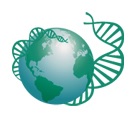Gates Foundation Project: Antibiotic Resistance Situation Analysis and Needs Assessment (ARSANA) in Uganda and Zambia
In October 2008, APUA received a $1.37 million grant from the Bill & Melinda Gates Foundation, to explore ways of reducing millions of preventable deaths from severe respiratory and diarrheal infections in Africa. The project, "Antibiotic Situation Analysis and Needs Assessment," is designed to evaluate antibiotic use and resistance in the African countries of Uganda and Zambia, by conducting a comprehensive analysis and needs assessment. The goal is to guide evidence-based interventions to reduce mortality due to pneumonia and diarrheal diseases, and the acquired knowledge is expected to contribute to appropriate healthcare practice and policy in Africa.
Immediately after the project was approved, work began on development of the questionnaires and study instruments. Initial team visits to both countries in January and March 2008 were made to identify local project staff and Country Advisory Team (CAT) members, and set up APUA project field offices. Team visits and introduction of the project were made to the Ministry of Health, drug regulatory authorities, microbiology laboratory authorities, key non-governmental organizations, WHO, and the larger bilateral organizations involved in health.
Ethical approval was obtained from the Health Science Campus Institutional Review Board of Tufts University, University of Zambia Biomedical Research Ethics Committee, the Makerere University College of Health Sciences Research Ethics Committee, the Uganda National Council of Science and Technology and finally the Office of the President of Uganda. The International Advisory Board met in March 2009 and again in June 2010 in Boston to provide input on project plans. The Country Advisory Teams met in July 2010.
In Uganda, the project worked with 92 medical, dental and pharmacy students of the Makerere University College of Health Sciences through the Community Based Education and Service (COBES) Program. The students were trained by APUA staff in interviewing and data entry, use of the GPS to record locations of drugshops, and ethics and confidentiality.
Students Going into the field receive copies of questionnaires.
They spent 2-3 weeks at 11 sites around Uganda, where they carried out approximately 92 interviews with pharmacy attendants and drug sellers; 100 interviews with prescribers from the health centers and hospitals; and abstracted over 10,100 records from outpatient files.
antibiotics sold at a typical uganda drug shop.
They also collected about 330 drug samples of amoxicillin, cotrimoxazole, and ciprofloxacin from the pharmacies and drugsellers; these will be subjected to drug quality testing.
Meeting with medical student data collectors after data had been collected.
MICROBIOLOGY GRADUATE STUDENTS FROM MAKERERE UNIVERSITY HAVE CARRIED OUT LABORATORY ASSESSMENTS ON 23 HOSPITAL LABORATORIES AROUND UGANDA.
In Zambia the training sessions and then data collection at health centers and pharmacies and drugshops were carried out in November-December 2009, with drug sample collection as in Uganda.
Zambia Project Sites
The Zambia microbiology assessment was carried out in October 2009, data were then entered in MS Access Database, and reports are being prepared. A pharmaceutical sector assessment was carried out in October-November 2009 in both Uganda and Zambia. In Lusaka, an additional collection of antibiotics was carried out by 19 community workers who visited about 85 informal sector drug shops and pharmacies in the high-density areas of Lusaka. They collected 630 samples of antibiotics which will be subjected to drug quality testing.
Drivers of antibiotic resistance in Uganda and Zambia (PDF of Powerpoint Presentation to the Global Health Council, Washington, DC., June 14, 2011)
Antibiotic Resistance: Situation Analysis and Needs Assessment in Uganda and Zambia (AR-SANA)
(Powerpoint presentation by Anibal Sosa)





